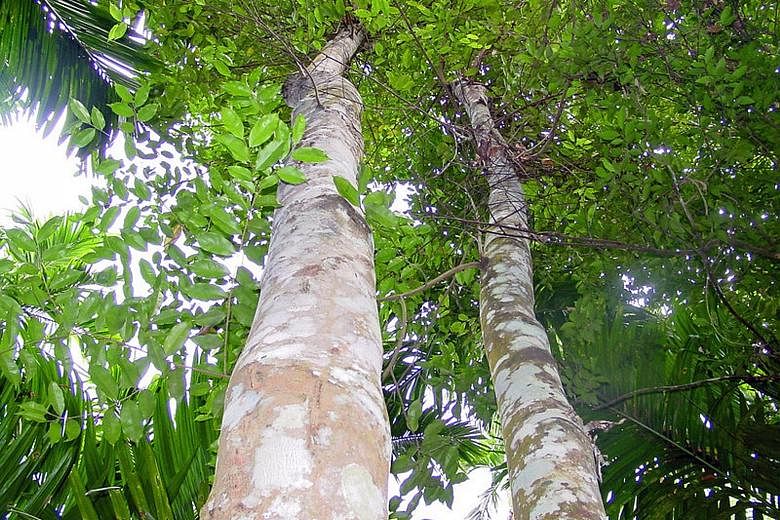About 70 investors, including Singaporeans and foreigners working here, are crying foul over a scheme that effectively promised that their money could grow on trees.
In 2013, the investors poured sums ranging from $5,000 to $60,000 into a scheme to grow aquilaria trees - a prized tree that is harvested for valuable agarwood or oud oil, used in perfumes and spas.
The investors, who were approached via telemarketing, complain that the firm they gave their money to - Singapore-based Tropical Forestry Venture (TFV) - has folded. It vacated its office at Sago Street more than a year ago.
And so far, they have had no luck pursuing their grievances with the authorities here.
Under the scheme, an investor paid about $230 per sapling or $550 per semi-mature tree. In return, he could expect potential returns of three to seven times when the saplings matured in six to seven years.
For semi-mature trees, the timespan was shorter.
The sales agreements typically state that there is a guaranteed return of $400 to $600 for every tola of agarwood oil harvested. A tola is an old Indian unit of weight, and is 11.66g.
Each tree could potentially yield at least four tolas. The harvesting cost and sales commission added up to 13 to 15 per cent of the sales proceeds.
Depending on the firm, the tree plantations could be in Kelantan in Malaysia or Kanchanaburi in Thailand.
Further complicating the investors' woes is their claim that another firm, Tropical Forestry Assets Management (TFAM), had asked them for cash top-ups to maintain or upgrade their trees before they could be harvested for profits.
When contacted, Mr Ben Soo, founder and managing director of TFAM, said the claims that his firm collected payments related to TFV's past sales were "untrue".
He said he has informed TFV's customers that the payments are for fresh batches of agarwood trees.
Mr Soo said TFAM was in no way related to TFV.
Several of the affected investors have made police reports against the two firms over the past 12 months.
When contacted, the police said it is inappropriate to comment on police investigations, if any.
Retiree Eugene Kwong, 53, told The Straits Times that he paid TFV for 150 saplings at $230 each in November 2013 and 25 semi-mature trees at $550 apiece in January 2014, which worked out to a total of $48,250. He was given an additional 15 trees for free.
Mr Kwong received a certificate of ownership from TFV for his saplings but not for the semi-mature trees.
He alleged that in May last year, he was notified by TFAM that TFV had folded and TFAM had taken over the marketing responsibility for the trees. However, TFAM had no marketing rights for TFV's customers, he claimed.
Subsequently, he bought 50 two-year old trees at $100 apiece from TFAM to try to recoup his investment. These trees will mature in about four years' time. Mr Kwong has filed a police report against TFV.
A 33-year-old investor, who declined to be named, said she bought two batches of 25 semi-mature trees each from TFV in September 2013. Each batch cost $5,250 - $210 per tree - and she paid for the first batch. She was given four trees for free. She said TFV told her at the time that September 2015 was the earliest that she could profit from her trees - and that did not happen.
She alleged that she was informed by TFAM at the end of 2014 that it was taking over the customer accounts from TFV which had ceased operations, and that she could continue her agarwood investments with TFAM. She later paid $7,950 ($310 per tree and $200 to upgrade two free trees) to TFAM in January last year, which she believed was balance payment of her transaction with TFV.
She later found out that TFAM did not consider her payment to be the balance payment of her agreement with TFV, but as payment for a new batch of trees with TFAM.
"I'm very frustrated. I hope TFAM will refund me as it has given the impression that it took over TFV's business," said the investor, who has filed a police report against TFV and TFAM.
The Consumers Association of Singapore said it has received nine complaints against TFV but the complainants were mainly counselled or rejected as the association does not handle such investment cases.
It also received a query relating to another agarwood firm, Asia Plantation Singapore - which is currently on the alert list of the Monetary Authority of Singapore - involving agarwood investments, said the consumer watchdog.


